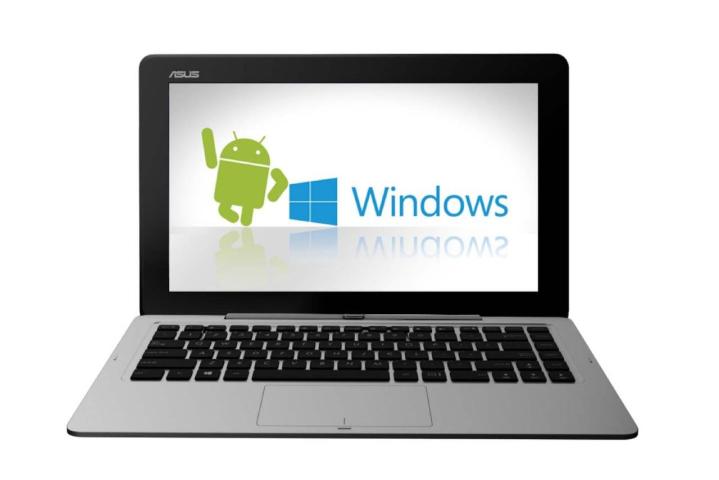
According to reports earlier this month, neither Microsoft, nor Google are keen on the idea of hybrid devices that dual-boot Windows and Android. On top of that, both the Asus Duet hybrid laptop, which the company showed off at CES 2014, and Huawei’s Windows/Android smartphone seem to have been caught in the crossfire and sent to an early grave.
These developments certainly aren’t surprising, given that Google and Microsoft are competing companies, both vying to be the go-to platform that powers today’s as well as tomorrow’s devices. More specifically, Microsoft probably isn’t happy to share hard drive space on desktops and laptops, where Windows still dominates. Meanwhile, Google has made it clear that they don’t see Android as a laptop or desktop OS. That’s what Chrome OS is for.
Google has made it clear that they don’t see Android as a laptop or desktop OS. That’s what Chrome OS is for.
But regardless of why Google and Microsoft seem averse to the idea of dual-boot devices, there are plenty of reasons why they aren’t a good option for most consumers anyway. The dual-boot devices I’ve seen so far, like Asus’ Transformer Book Trio and Transformer AiO desktop/tablet, don’t lead me to believe that dual-booting devices will ever be anything more than niche options for enthusiasts and tech nerds.
Hybrid devices also usually require extra hardware. For instance, the Transformer Book Trio has a Windows PC in its base, and a whole separate set of tablet hardware behind its screen. Upcoming chips from Intel and AMD that can run both Windows and Android code will make this less of a necessity. Nevertheless, these devices will likely always need some form of extra hardware to accommodate different operating systems and modes, whether that’s just dual batteries and a couple of extra ports, or extra chips and storage.
Extra hardware also means extra weight, bulk, and cost. Those problems were our primary issues with the Transformer Book Trio. At 3.7 pounds, it’s much heavier than similarly sized Ultrabooks, nearly an inch thick as a laptop, and because the extra hardware means there’s less room for a big battery, battery life is short.

Price is also a problem. For the Trio’s asking price of $1,300, you could easily buy a thinner, lighter, longer-lasting Ultrabook and a good Android tablet, like the Nexus 7 or, if you prefer a bigger screen, Sony’s Xperia Tablet Z.
Sure, the above issues could be balanced by improved hardware design. However, it seems very unlikely to me that mainstream consumers have either the tech know-how to fully grasp the potential benefits (and limitations) of a dual-OS device, or the patience to figure out how to manage two software environments on one device. Give a dual-OS device to your uncle or aunt, and they’ll likely spend nearly all their time in one OS or the other. So why pay for both options?
As a long-time hardware enthusiast, I understand the appeal of dual-OS devices–in theory.
As a long-time hardware enthusiast, I understand the appeal of dual-OS devices–in theory. In theory, I’d love one device that has all the productivity prowess of my Windows laptop and all the great apps found in the Android or iOS app stores. But in practice, every dual-OS device I’ve tried so far has been more expensive than two separate devices, and more cumbersome to use as well.
For the record, I’ve never owned an iPad, an iPhone, or a MacBook Air. However, there’s a reason that Apple made the smartphone market mainstream and why they’ve been gaining ground recently in the shrinking PC market as well. Apple generally makes products that are easy to understand and easy to use. That’s what most consumers crave: a device that gets out of the way, lets you do what you want, and just works.
A good Windows laptop can be that kind of device. So can a good Android tablet, but it’s hard to see how a dual-booting hybrid device could ever be as simple, affordable, and easy to understand as two separate devices that do their respective jobs well. With most PC makers now also selling Android tablets, it’s hard to understand why they would want to spend massive amounts of money developing one device for all your computing needs when they can just sell you two.
Editors' Recommendations
- How to dual boot Windows 10 and Windows 11
- Microsoft’s Windows 10X OS may be featured on dual-screen devices


